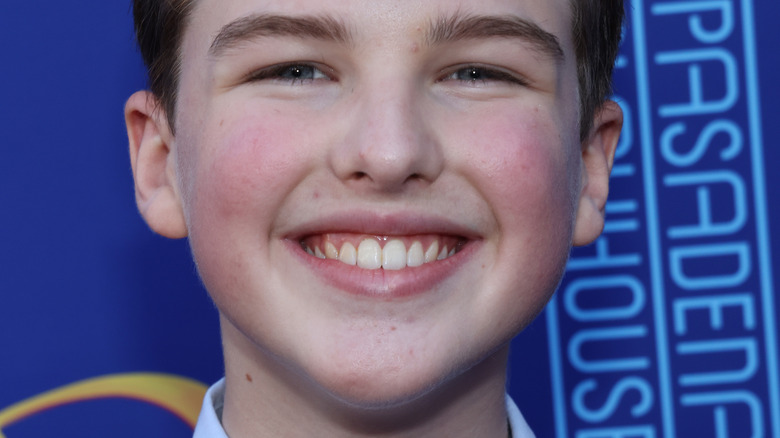The Unexpected Way The Big Bang Theory's Sheldon Affected The Science World
Between "The Big Bang Theory" and its spin-off-slash-prequel "Young Sheldon," Sheldon Cooper has become a surprising pop culture icon. According to NPR, the concept came from the show's co-creator Bill Prady who used to write computer software. He described to Chuck Lorre a real-life programmer he worked with who was brilliant but couldn't interact well with people, and Lorre told him, "Hang on, I've never seen that guy on television." And thus, Sheldon Cooper was born.
Still, when the spin-off "Young Sheldon" was conceived, the inspiration came from star Jim Parsons' life. According to an interview with The Hollywood Reporter, Lorre was inspired to make "Young Sheldon" because of Jim Parsons' nephew. "The beginning was a phone call from Jim Parsons, who sent me a video of his 10-year-old nephew in Texas who is a prodigy — brilliant, extraordinary, off the hook, crazy smart kid," Lorre recalls. "And Jim asked, 'Is there anything we can do with this?' I said, 'Well, if we wanted to do a show about a young man who is brilliant — a comedy — we have that built into our show. That's the backstory of Sheldon Cooper.'"
While the character of Sheldon Cooper draws from multiple real-life models, the character also affected the real world in a very surprising way.
There's a bee named after Sheldon
According to Smithsonian Magazine, a bee was discovered in 2012 that was named after Sheldon Cooper's popular catchphrase. The orchid bee was named Euglossa bazinga by André Nemésio of the Universidade Federal de Uberlândia in Brazil. According to the abstract of the Zootaxa article written by Andre Nemesio and Rafael R. Ferrari, upon the discovery of the bee, the bee is found in "drier and more open habitats like savanna and Brazilian Cerrado."
According to the aforementioned article in Smithsonian Magazine, the initial paper identifying the bee went on to describe why the scientists chose the name. "The specific epithet honors the clever, funny, captivating 'nerd' character Sheldon Cooper, brilliantly portrayed by the North American actor James Joseph 'Jim' Parsons on the CBS TV show 'The Big Bang Theory.' Sheldon Cooper's favorite comic word 'bazinga,' used by him when tricking somebody, was here chosen to represent the character. Euglossa bazinga sp. n. has tricked us for some time due to its similarity to E. ignita, what led us to use 'bazinga.'" The paper goes on to point out that there was also an asteroid named after Sheldon Cooper, known as 246247 Sheldoncooper.
It's hardly surprising that scientists love the show enough to name their discoveries after it. In an article for Physics Today, Margaret Weitekamp, a curator at the Smithsonian National Air and Space Museum, wrote about how the show portrays the characters sympathetically, unlike many classic depictions of scientists that portray them using stereotypes like the "mad scientist" or the "absent-minded professor." It would seem that scientists often find the series' depiction of them to be flattering. Perhaps there will be more scientific discoveries in the future that are named after the popular sitcom.

